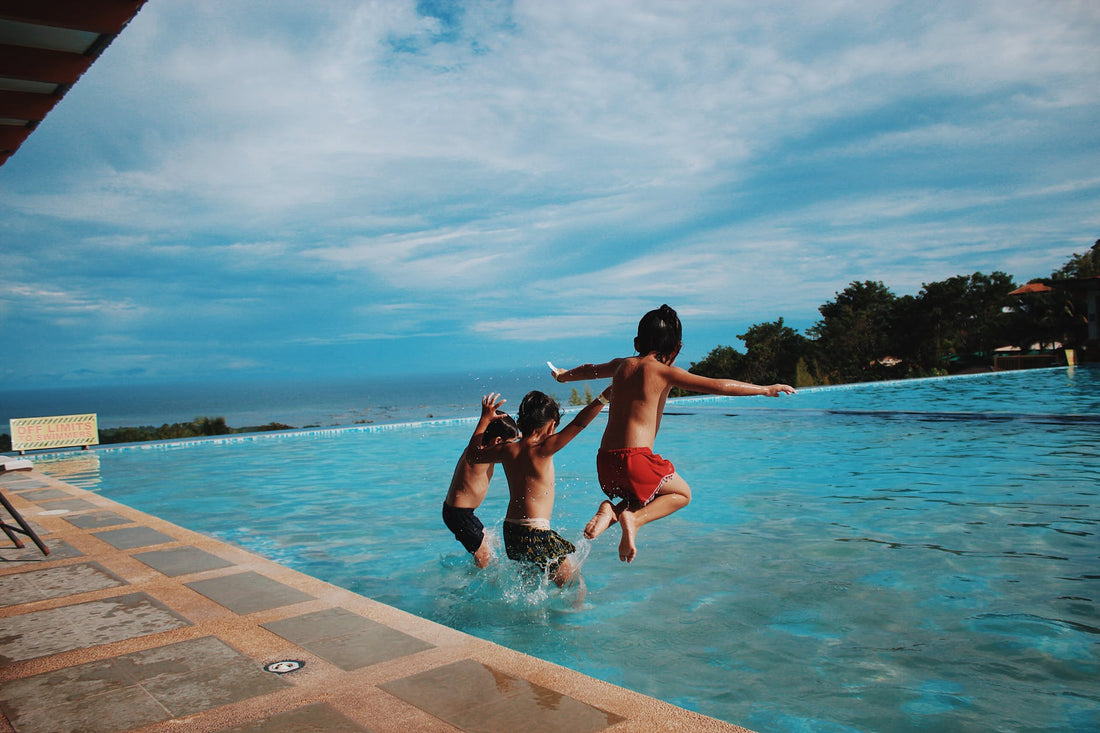Summer is almost here parents! The kids are out of school, vacation plans are in the works, and it's all about having some fun in the sun with the family.
But before you head outdoors to go swimming and hiking, you need to know about the risks that come with summertime.
I'm not trying to scare you or make you feel like you have to stay indoors - that would be a summer travesty! However, it is important to know the how to prevent emergencies from happening so you can relax and enjoy your summer.
Here are a few summer risks you should know about and how to avoid them:
Practice Water Safety

This should go without saying, but toddlers should always wear the proper swimming gear, even if they have learned how to swim. Floaties are excellent for the pool, but if you are planning to hit the beach, a life vest or personal floatation device (PFD) will give your child a bit more freedom to move around.
According to the American Society of Pediatrics, an estimated 370 drownings and 5,600 near-drownings involving children under the age of 15 occur in pools and spas each year, and 77 percent of those are children under the age of 5.
Watch Out for Mosquitos and Ticks

Mosquitos and ticks are very active in the summer, and they can carry a variety of diseases including West Nile virus and Lyme disease. Yuck.
The best way to prevent your child from becoming the main course to these preying insects is to make sure the environment surrounding your home doesn’t cater to their needs. In other words, your yard needs to become a place they don’t like to be.
You can do this by eliminating any standing water - it is a breeding ground for mosquitoes. This could include empty flower pots, outdoor trash cans, and bird baths. Keep your lawn cut and free from brush to prevent ticks from moving in. Keeping bug-repelling plants around such as Citronella can also be very helpful (I have several in my backyard), just make sure you keep them away from your pets as they could be toxic to them as well.
To avoid bites, make sure you apply bug spray wherever skin is exposed. There are plenty of natural bug spray options available if you prefer to avoid the heavy chemicals that are in many popular brands. Be sure to use the right spray for your child’s age, especially if you have a small baby. If your child does get bit by a mosquito or tick and develops any flu-like symptoms, rash or fever contact your pediatrician immediately.
Watch out for the Heat

The summer means heat, and that also means your child is at risk for a heat stroke. Always dress your kids in lightweight, loose clothing if you are going to be out in the sun for a long period of time. Always bring along plenty of water and for babies, you should always have breastmilk or formula to provide enough hydration. Super important!
Make sure you keep small babies in the shade as much as possible - they have a higher risk than older children. A mistake that many parents make in the summer is putting a blanket or thin cover over the baby’s stroller. While this does create shade for the baby, it also can cause the temperature inside the stroller to rise and your baby to overheat. Instead, consider purchasing a portable fan that you can attach to the stroller to keep things cool. I have found the portable fans with the water mist option work great!
Be mindful when you are traveling in the summer as well. Keep the car well ventilated and cool inside as car seats can become very hot. Try to park your car in the shade when you can. And always cool it down by opening the windows and blasting your air conditioning before placing your children inside.
Wear Sunscreen

References:
American Society of Pediatrics
American Academy of Dermatology (AAD)
Save this article for later by pinning the image below:

